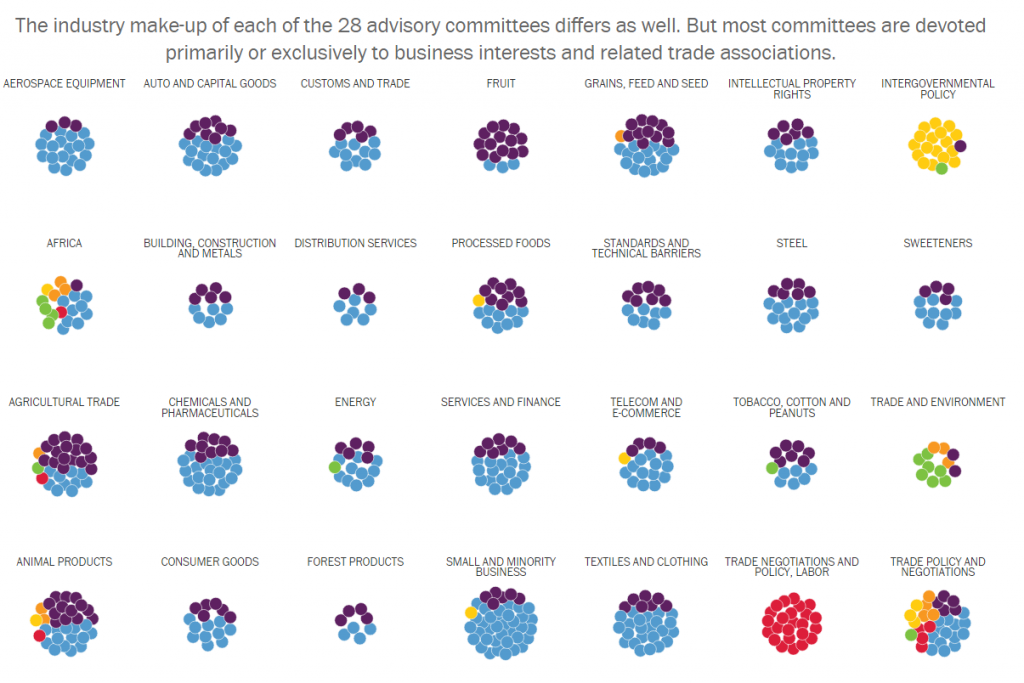President Obama continues to press for a form of fast track approval to ensure Congressional support for two major trade agreements: the Trans-Pacific Trade Partnership Agreement (with 11 other countries) and the Trans-Atlantic Trade and Investment Partnership Agreement (with the entire European Union).
Both agreements, based on leaks of current negotiating positions, have been structured to promote business interests and will have negative consequences for working people relative to their wages and working conditions, access to public services, and the environment.
These agreements are being negotiated in secret: even members of Congress are locked out of the negotiating process. The only people that know what is happening and are in a position to shape the end result are the United States trade representative and a select group of 566 advisory group members selected by the U.S. trade representative.
Thanks to a recent Washington Post story we can see who these advisory group members are, and, by extension, whose interests are served by the negotiations. According to the Post, 480—or 85 percent—of the members are from either industry or trade association groups. The remaining 15 percent are academics or members of unions, civil society organizations, or government committees. The story includes actual names and affiliations.
Here we can see the general picture of corporate domination of U.S. trade policy as illustrated by the Washington Post.



In short, corporate interests are well placed to directly shape our trade policies. No wonder drafts of these treaties include chapters that, among other things, lengthen patent protection for drugs, promote capital mobility and privatization of public enterprises, and allow corporations to sue governments in supra-national secret tribunals if public policies reduce expected profits.
This post originally appeared on Sociological Images, a Pacific Standard partner site, as “Industry’s Influence on Trade Policy.”




